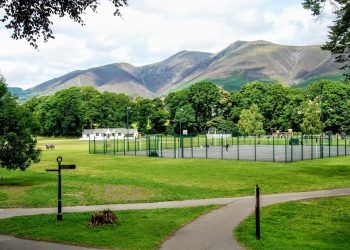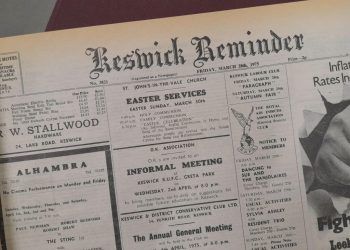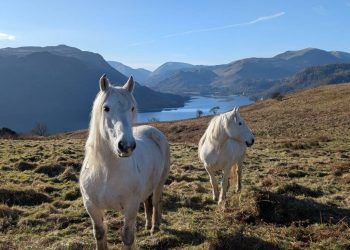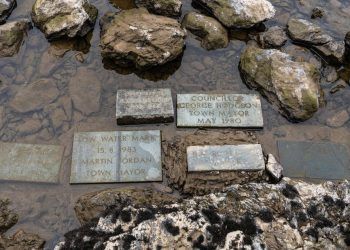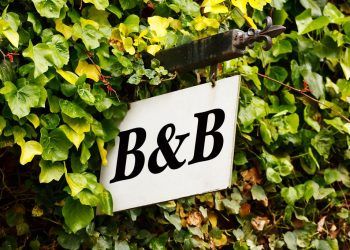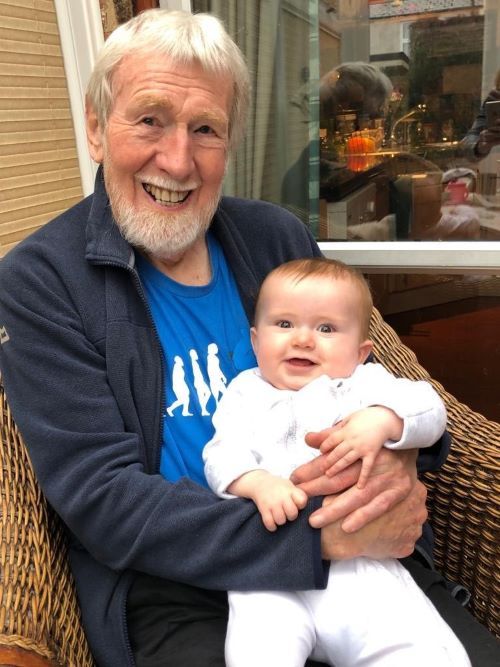
A prolific athlete who was never happier than when he was knee deep in bracken charging around the Lake District fells has died, aged 90.
And on Friday (February 17) George Ellis was remembered at a service of thanksgiving held at Cheltenham Crematorium.
George was a former ‘old Keswickian’, athlete, rugby player, teacher and self-professed mountain goat.
He loved the Lake District, the mountains and the outdoors.
George was born at the home of his grandparents in South Shields in September 1932 and his place of birth was celebrated by him becoming a life-long fan of Newcastle United FC.
His true love of the lakes and mountains began when his parents bought the Parkfield guest house in Keswick.
He was an all-round sportsman and his time at Keswick School launched a career which included many achievements in running and rugby. Among many plaudits, he was the AAA 100yds and 220yds champion, represented England at the Empire and Commonwealth Games and the European Championships (bronze in the 100m and 200m and silver in 4 x 100m relay in 1954) and played for, among others, Richmond and Harlequins rugby football clubs.
He was described as “the Keswick schoolboy wonder” in one article by Joe Binks in the News of the World, who wrote: “He will be only 19 when the next Olympic Games are held, but how can they stop him going to Helsinki next year?’’
While still in his final year at Keswick School George had already caught the eye of Harold Abrahams, the 1924 sprint gold medallist at the Paris Olympics, whose expertise was by 1951 featuring in The Times.
Abrahams hailed George as “sprint champion of the future” after witnessing his two third places in the AAA Championship finals at White City.
It was, said Abrahams, “really phenomenal” He added: “If all goes well he should certainly be British champion one day.”
It was a view shared by Olympic runner Doug Wilson who wrote that George Ellis, “the eighteen-year-old Keswick schoolboy, lives in a hot-bed of professionalism, but is not the slightest interested in the money angle having scorned several approaches.”
In fact George was once approached by Bob Thirlwell who ran a stable of professional runners based in Keswick, who wanted him to run in the big Powderhall Sprint in Edinburgh. He turned the offer down as it would have been the end of his amateur status and wider national and international ambitions.
Sadly George’s Olympic dream faded when, while doing National Service in the RAF, he caught a chest infection which turned into a serious case of bronchopneumonia.
He lost vital ground due to his illness and could not quite repeat the level of performance he set in 1951. He said: “My Olympic aspirations and dreams were in tatters. The slippery slope of descent –hero to zero – can often catch you unawares.”
He was a certainty for selection, but as George admitted, it became a case of “what might have been”.
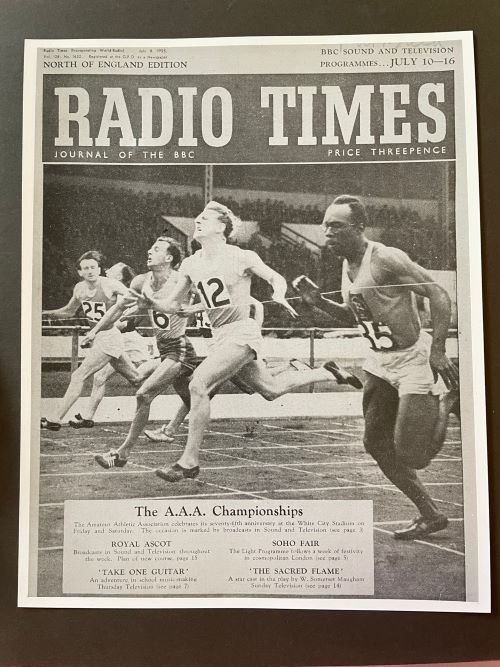
However, his outstanding year was still to come in 1954 when he became AAA’s 100 yards champion and competed with distinction in Commonwealth and European championships.
And it was all down to a little red book which a visitor to his family’s Eskin Street home handed to a young George Ellis in 1947.
“Teaching and Training Athletes” remained cherished at his side throughout his life. “I was inspired by that book and a dream was born in my mind,” he once said. The section on sprinting highlighted Jesse Owens, the star of the 1936 Olympics in Berlin.
He was also an avid fell runner and mountaineer and as well as competing in the tough Lakeland mountain trials and completing all the Wainwrights, he climbed the Munros and the Corbetts in Scotland.
After gaining his college diploma in physical education from Loughborough, he began a teaching career which included stints at Laithwaite School, Keswick, and running mountain leadership outdoor pursuit courses in Patterdale.
He found his career in teaching rewarding and fulfilling and received much praise and thanks from pupils and peers alike.
While at Lairthwaite School he continued with his athletics and won the Northern Counties 880yds championship at Witton Park, Backburn, and came second in the Cumberland Cross Country Championships. After retirement, he continued running, cycling and climbing, including completing the London Marathon twice and undertaking cycling sportives as an octogenarian. He shared his love of the Lake District with his family who all have many happy memories of clambering around the fells, rowing across Derwentwater and spending all their pocket money in Friars sweetshop.
George was kind, thoughtful, intelligent and an extremely talented sportsman which was further highlighted when he scored seven tries on his debut for Cumberland rugby against the Royal Navy at Carlisle.
He will be greatly missed by his family and friends. He is survived by his daughters Jessica and Brodie and his two sons, Giles and Duncan, as well as five grandchildren, two nieces, three great-nieces and one grand-dog.
The family have asked that if desired, donations, in lieu of flowers, should be made to one of George’s favourite charities, The John Muir Trust.



